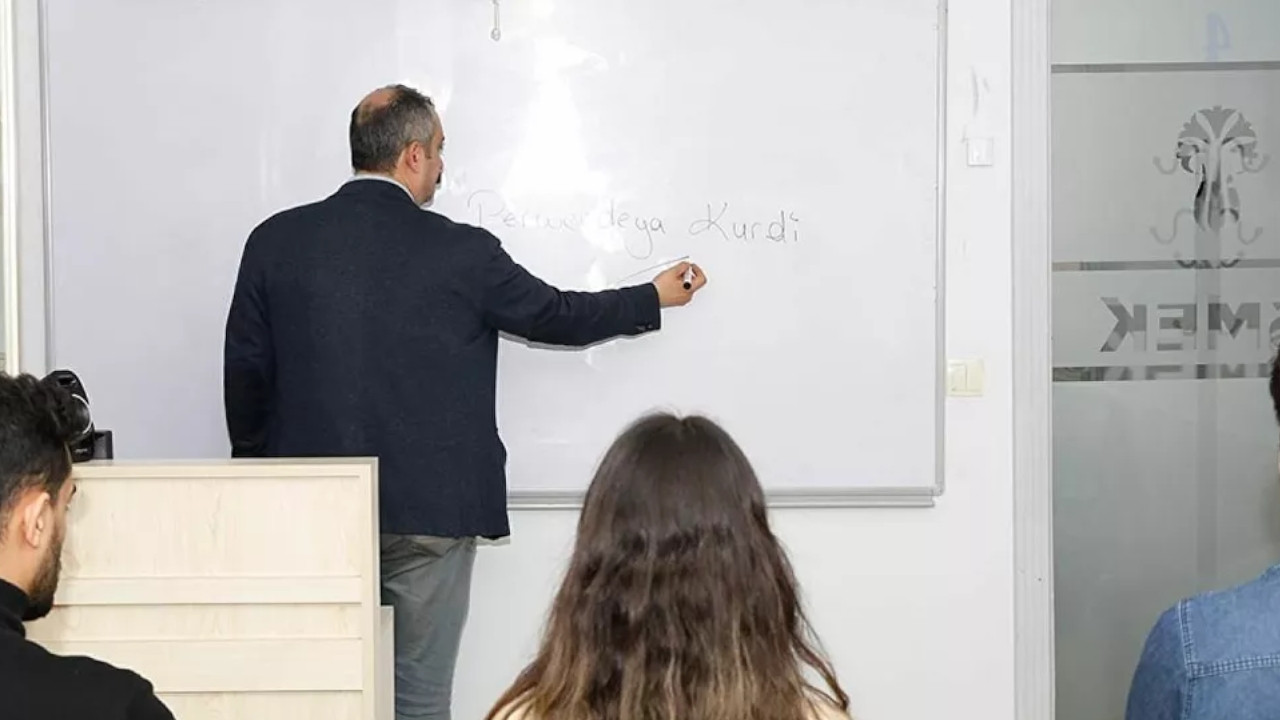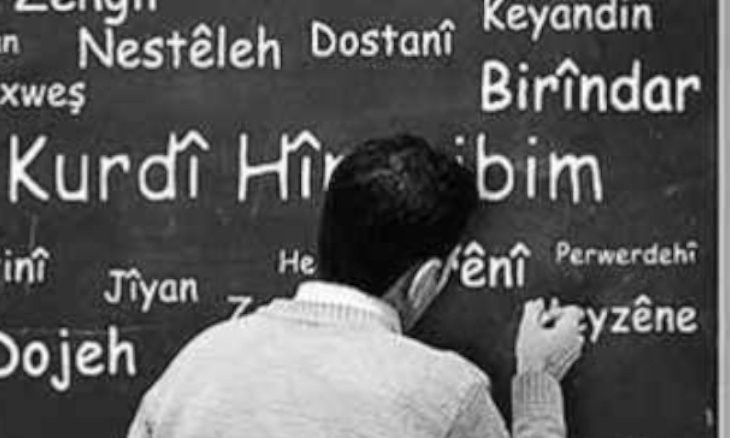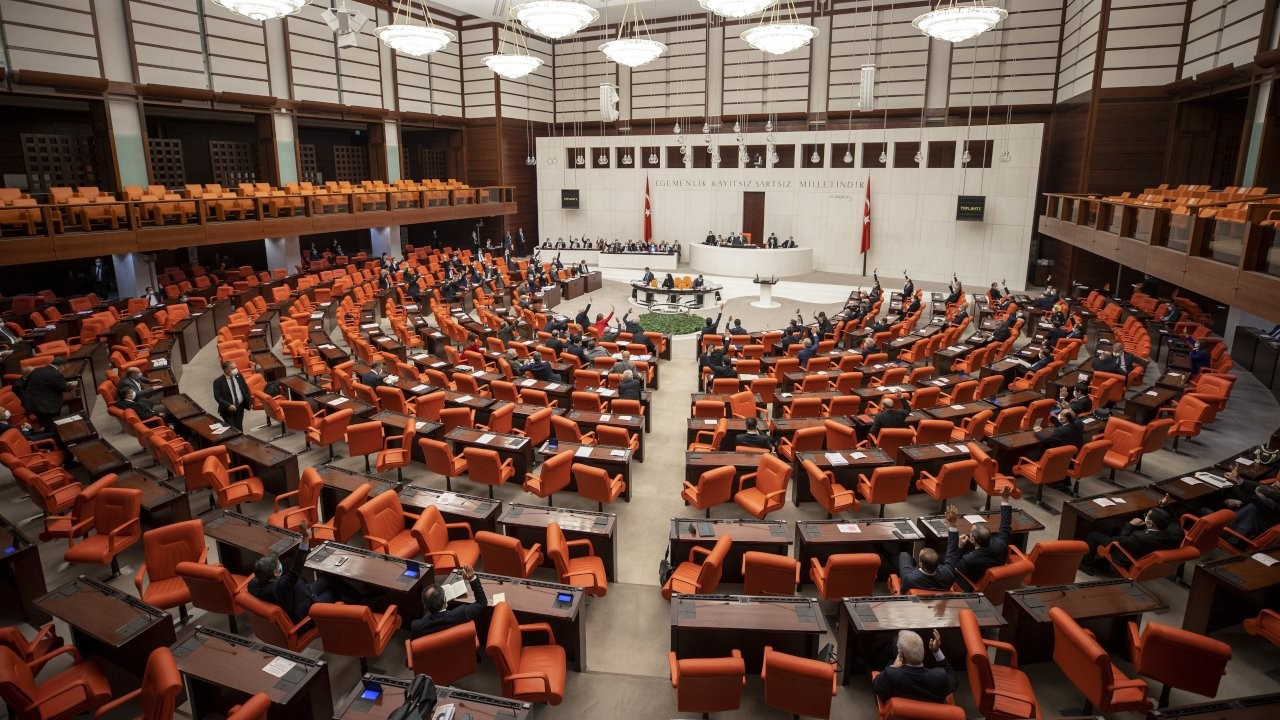New era at Istanbul municipality-run language institute brings increased Kurdish instruction
As face-to-face language education restarts at the Istanbul municipality-run education center İSMEK, the institute has undergone significant changes. Notably, the demand for and offering of various Kurdish dialect classes have increased.
Ferhat Yaşar / DUVAR
Face-to-face language instruction has re-started at the Istanbul municipality-run education center İSMEK - now re-named Istanbul Institute İSMEK - and classes are in demand. More than 16,000 people have applied for 8,000 spots in language training classes once applications opened. Notably, hundreds of people signed up to learn Kurdish, and the institute is seeking more Kurdish instructors.
The Istanbul Institute İSMEK re-opened on Sept. 23, with Istanbul Mayor Ekrem İmamoğlu in attendance. Applications for the Institute courses opened at 10 am the next day - Sept. 24 - and within two hours the Institute received more than 20,552 applications. The site was so overloaded that it was inaccessible for an hour. As of Oct. 19, some 120,000 people have applied for the Institute’s 565 varied courses, and applications and registration continue.
Some 16,000 people applied for language courses alone. The Institute only has 8,000 spots for its courses teaching German, Arabic, Persian, English, French, Japanese, Kurdish, Ottoman Turkish, Russian, sign language, and Turkish for foreigners - in other words, the Institute received twice as many language course applications as spots it can offer. Institute coordinator Dr. Canan Aratemur Çimen said that İSMEK is one of the most widely available education platforms in Turkey and that the skills the Institute teaches are highly in demand.
“There is no other education platform in Turkey that reaches such a large number of people […] Language training is one of the most in-demand subjects. In total, we have received over 120,000 applications, 16,000 of which were for language. The quota [for language] is nearly 8,000. There are twice as many applications as the quota,” she said.
Kurdish language instruction began at the Institute in 2019. According to Dr. Çimen, the demand for the language, which was not allowed to be taught in Turkey until the early-2000s, is high. Over 170 people applied for A1 Kurdish classes, while 60 applied for A2. Currently, the Institute only offers the Kurmanci dialect but is recruiting instructors for the rarer Zazaki dialect, spoken in some parts of eastern Turkey. Dr. Çimen said they will continue to recruit Kurdish instructors in accordance with the demand of students for the language.
Nihal Kayışkıran was one of the first two instructors recruited to teach Kurdish at İSMEK and has now been teaching for two years. According to her, many of those that come to learn Kurdish are from Kurdish families but do not use the language in their day-to-day life. Many are people who want to improve their ability to communicate in Kurdish with friends, patients, or clients. Others are seeking a closer connection to their family and roots.
“All of these people live in big cities, they’re not speaking [Kurdish], not practicing it, they have forgotten it over time,” she said. “They want to come to the course and return to their essence again.”
In addition to increasing the availability of Kurdish language education, the Institute has undergone structural changes. According to Dr. Çimen, the institute re-structured and re-imagined itself to be more academic. Previously, she said, there was a “somewhat disorganized” educational structure, which they have now gathered under four main branches of education: vocational training courses, which she says are critical in this post-pandemic period; personal development courses, which language classes are a part of; fine arts courses, and handicraft courses. Dr. Çimen highlighted that the restructuring was done in line with the demands of Istanbullites - as those demands change, the organization will continue to evolve to meet them.

 Istanbul municipality starts to receive citizens' applications for free Kurdish coursesDomestic
Istanbul municipality starts to receive citizens' applications for free Kurdish coursesDomestic Kurds on Kurdish coursesEducation
Kurds on Kurdish coursesEducation Turkish parliament offers simultaneous translation into four languages, excludes KurdishPolitics
Turkish parliament offers simultaneous translation into four languages, excludes KurdishPolitics